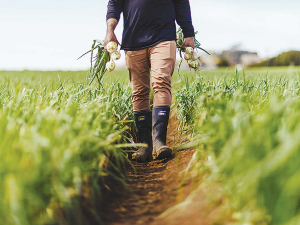Hort NZ chair Barry O'Neil says food supply and security is fundamental to New Zealand's future.
He says the question has to be asked whether people want fresh fruit and vegetables grown in NZ. O'Neil stresses that unless highly productive land is retained and the cost of production kept at a reasonable level, the alternative will be imported product.
"That is the scenario we are facing and to us it's a no brainer," he told Hort News.
"We want our children and grandchildren to always have access to our own produce. We need to get Kiwis eating healthy, nutritious food to address the health consequences we are seeing all too much of in New Zealand."
O'Neil says other issues the incoming government needs to address include "a totally messed up" resourcing and consenting system, an Environmental Protection Agency approval system that is "for all intents and purposes broken" and labour policies that seem to incentivise low productivity.
He adds that the challenge facing the country is how to get agreement on some really hard issues - something that has not happened to date. "We keep on delaying making decisions and kick them down the road for someone else to handle," O'Neil says. "That is just not good enough and has to change - we must address them for everyone's future."
O'Neil also believes that central and regional government, Māori, industry and the wider community must find a way of working together to be able to make decisions within a reasonable time and cost framework.
"We are fiddling while Rome burns. We can't take 20 years to land these issues, nor can we afford to spend hundreds of millions arguing the solutions."
He says this is not rocket science because the solutions are under our noses.
"We all need to engage with open minds, understand the issues and options available, agree the way forward and make it happen."











